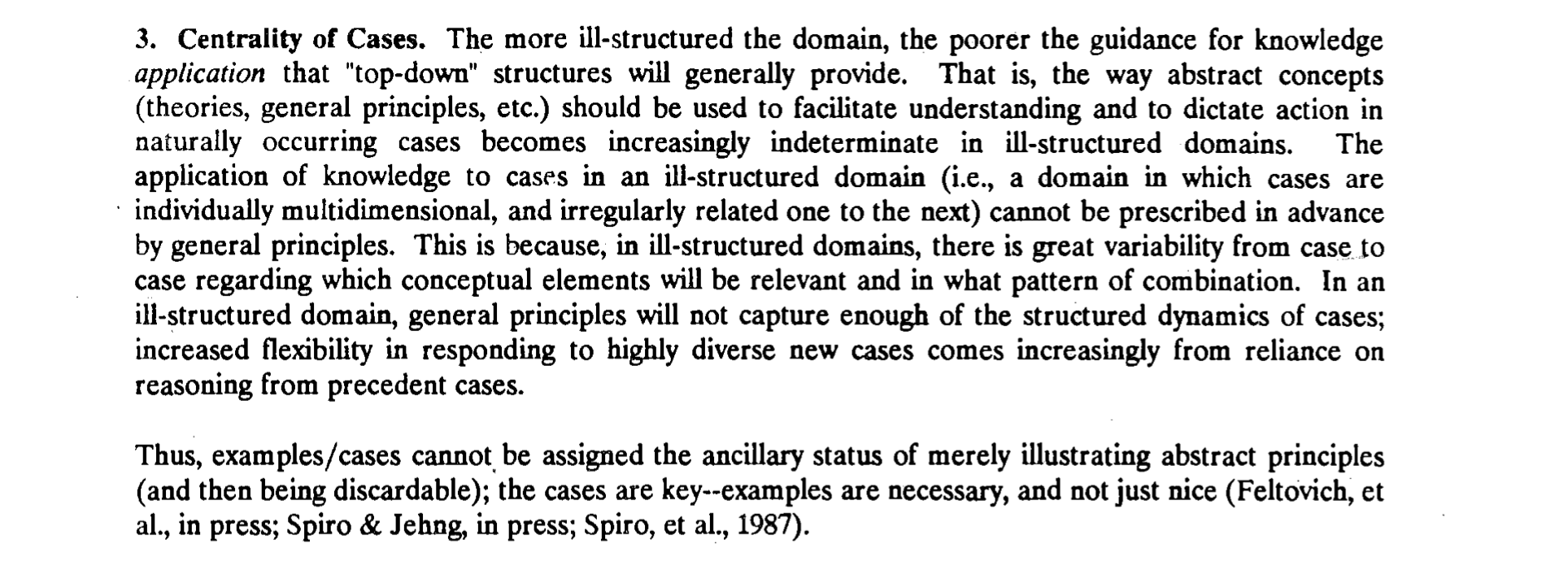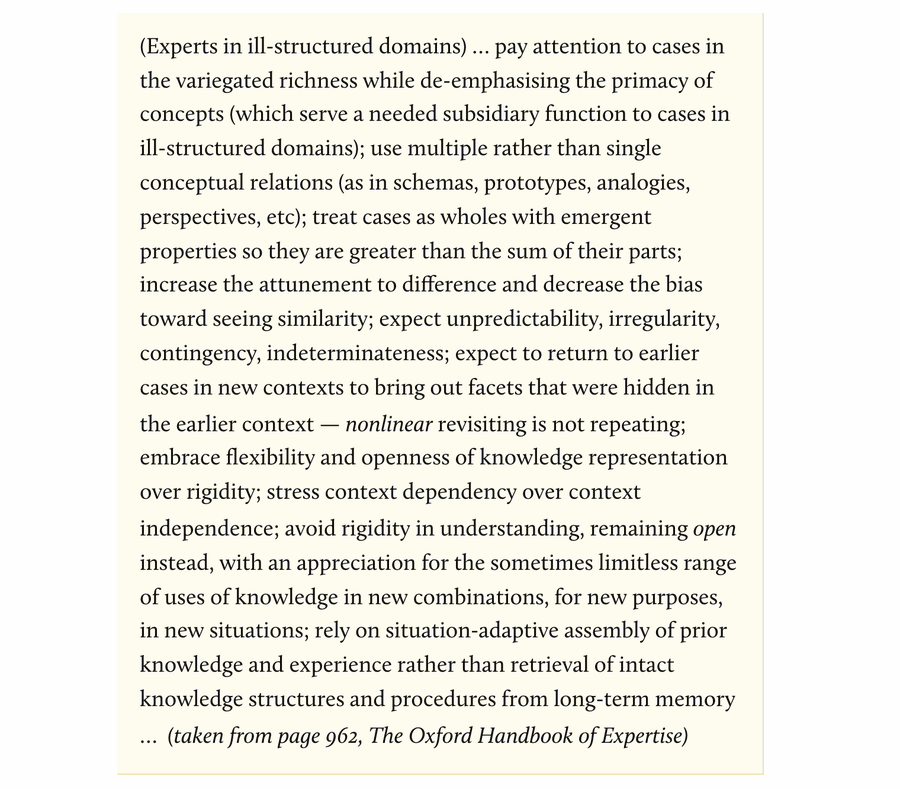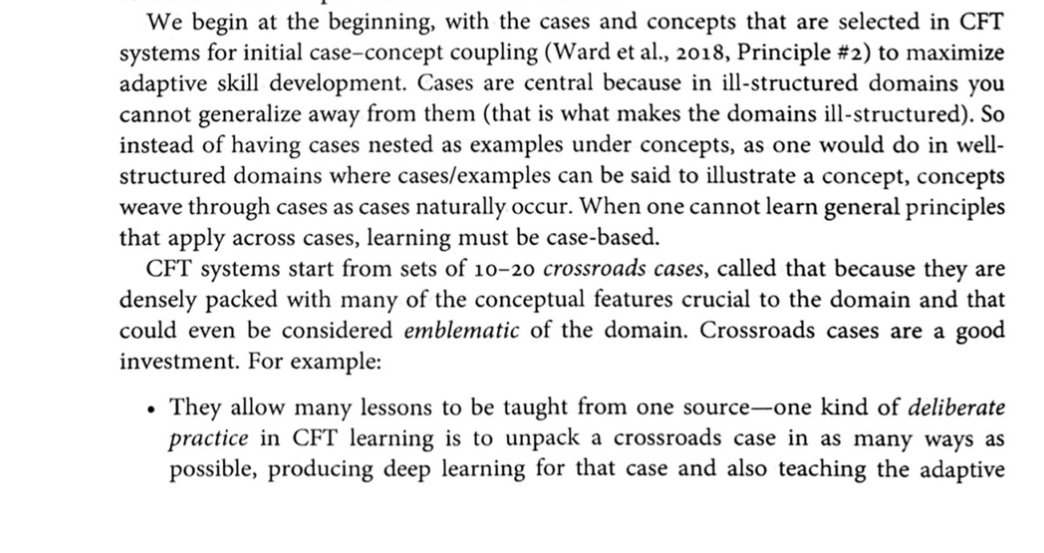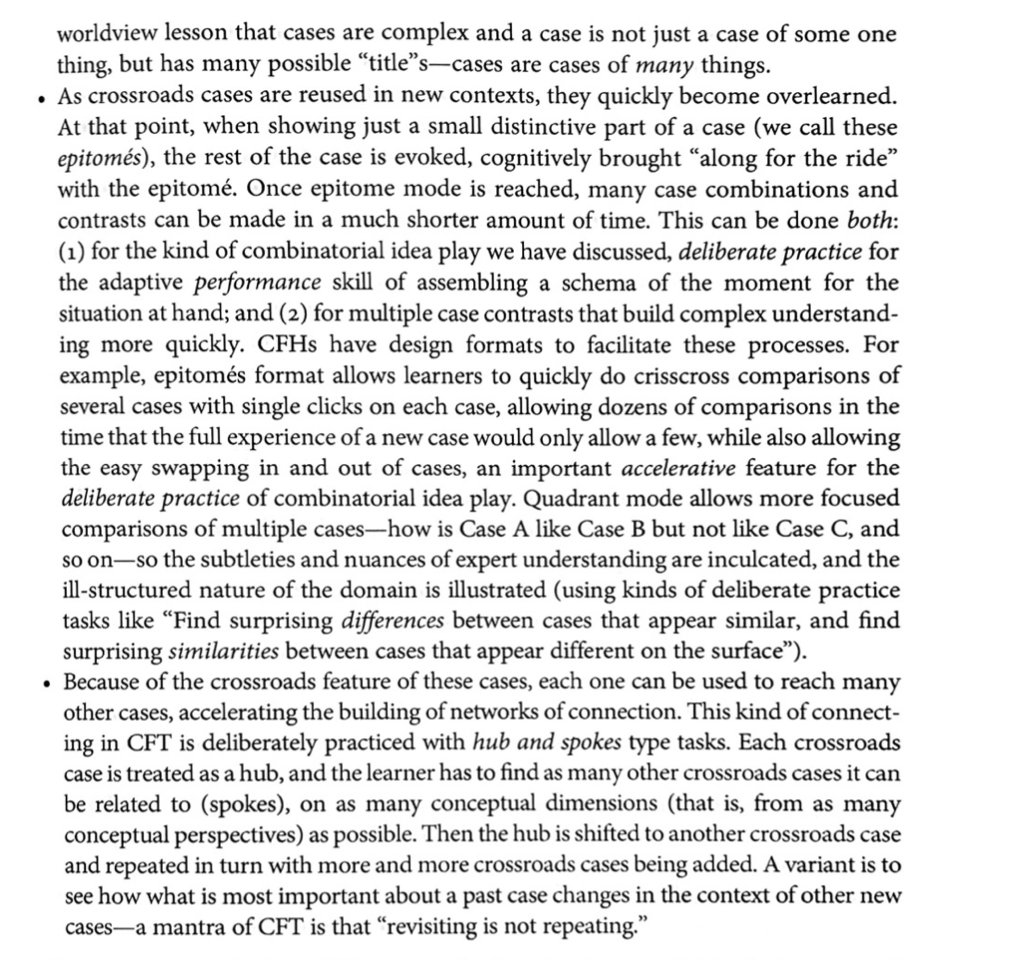What is CFT? CFT is a theory that asks: "how do experts deal with novelty?"
4 main ideas
- CFT is Concerned With Ill-Structured Domains
- An ill-structured domain is a domain where there are concepts, but the way these concepts show up in reality are HUGELY variable.
concept instantiation is highly variable for cases of the same nominal type."
- in ill-structured domains, cases are AS if not MORE important than concepts.
- I think most of us are taught to think that concepts are important, and cases are 'just' examples. (process-philosophy makes that point with r-term, a-term)
- Usually we say something like "it's the PRINCIPLES that are important!" How did we get here? I think we got here because we are taught to think like this. In math class, for instance, we are given 1-2 examples but we know it is the formula that is important.
- But if you are trained to think that concepts.first-principle are important, you will think that the cases are so that you can extract generalised, abstract principles, and that THOSE are primary.
- CFT tells us that in ill-structured domains, concepts are hugely variable so reasoning from concepts are insanely hard.
- In fact, extracting generalisable principles from case studies is close to impossible!
- It turns out that experts in ill-structured domains DON'T reason from first principles as much. They tend to reason from past cases instead!

- Isn't reasoning by analogy lousier than reasoning from first principles?
- experts in ill-structured domains reason by comparison to previous cases, not by reference to concepts.first-principle. (Source: see citations in the original CFT paper)
- They construct temporary schemas by combining FRAGMENTS of prior cases.
- They have something called an 'adaptive worldview', which means they do NOT think there is one root cause or framework or model for any event.


